| Title | Effects of ethanol, caffeine, and placebo on the auditory evoked response. |
| Publication Type | Journal Article |
| Year of Publication | 1978 |
| Authors | Wolpaw, J, Penry, JK |
| Journal | Electroencephalography and clinical neurophysiology |
| Volume | 44 |
| Pagination | 568–574 |
| Date Published | 05/1978 |
| ISSN | 0013-4694 |
| Keywords | Placebos |
| Abstract | A previous paper (Wolpaw and Penry 1975) described separation of the 75-250 msec portion of the AER into N1P2, a product of large areas of cortex, and the T complex, probably a product of secondary auditory cortex. With monaural stimulation, the T complex is larger and earlier on the side contralateral to stimulation and on the right side. Thirty-one normal adults received 3 oz. of ethanol, 300 mg of caffeine, or placebo. Monaural AERs were recorded before intake in all cases, 1 and 4 h after ethanol and 80 min after caffeine or placebo. Blood levels of ethanol and caffeine were measured. Placebo produced mild (20%) decreases in N1P2 amplitude. Caffeine did not decrease N1P2 amplitude. It did produce a statistically significant 2% decrease in Ta peak latency. Ethanol reduced N1P2 amplitude markedly at 1 h and mildly at 4 h. Placebo did not affect hemispheric differences. Caffeine significantly increased the Ta peak ipsilateral vs. contralateral latency difference in 3 of 7 individuals. Ethanol significantly increased it in 3 of 6 subjects at 1 h and in 7 of 10 at 4 h, primarily by increasing ipsilateral latencies. |
| URL | http://www.ncbi.nlm.nih.gov/pubmed/77763 |
| DOI | 10.1016/0013-4694(78)90124-4 |

